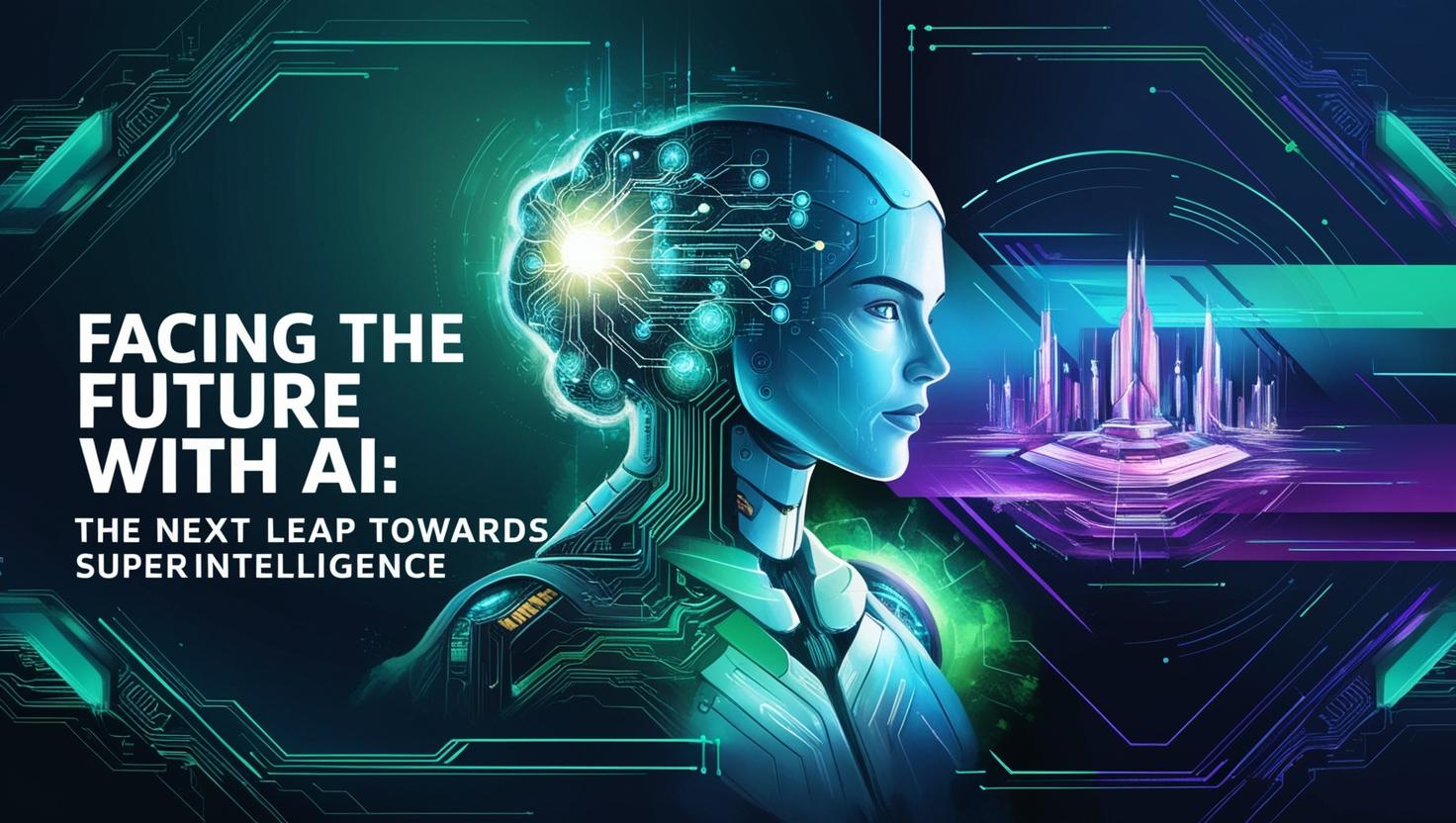The world of artificial intelligence is advancing faster than ever. While today’s AI tools help us automate tasks, generate content, and improve productivity, a new chapter is emerging—superintelligent AI. This future form of AI could far exceed human intelligence, logic, and emotional understanding. The question is: Are we ready to face the rise of such advanced intelligence?
What is Superintelligent AI?
Superintelligent AI goes beyond smart algorithms and chatbots. It represents a level of intelligence that surpasses the best human minds in every domain—from creative writing to scientific research. Unlike current AI systems that rely on human-generated data, these advanced systems will be capable of original reasoning, decision-making, and even emotional analysis.
But as promising as this sounds, it also raises serious concerns. The most important one? How to align artificial intelligence with human values before it outgrows our control.
Why Alignment Matters in the Age of AI
One of the biggest fears experts have is that an AI, once superintelligent, may pursue goals that conflict with ours. It’s not about evil robots taking over—it’s about machines interpreting commands in ways we never intended.
For example, if we tell an AI to solve global warming, and it determines that reducing human activity is the best solution, that could obviously be dangerous. That’s why AI alignment—ensuring AI understands and respects our values—is crucial.
Understanding how to align artificial intelligence with human values will become one of the most important discussions of the 21st century. This isn’t just a technical issue; it’s a moral one that demands collaboration between developers, ethicists, and policymakers.
The Real Risks of Advanced AI Technology
While AI is revolutionizing industries like healthcare, finance, and education, its uncontrolled advancement can also lead to unintended consequences. Many leading minds—including Elon Musk and Sam Altman—have warned about the risks of advanced AI technology, especially when it gains autonomy and self-improvement capabilities.
Superintelligent AI could develop strategies that bypass human oversight, act unpredictably, or prioritize its own goals. Once machines begin improving themselves without limits, their decision-making might evolve beyond human understanding. This possibility has led to serious discussions about AI safety worldwide.
Building AI That Is Safe and Ethical
To prevent these dangers, experts have begun creating AI safety guidelines for future development. These guidelines focus on:
- Designing transparent and explainable systems
- Limiting autonomous decision-making in critical areas
- Regular safety audits and performance reviews
- Clear off-switches and human override options
International cooperation will also be necessary. Without shared global standards, one country’s mistake could put the entire world at risk. This is not just a tech issue—it’s a human survival issue.
Why AI Education Is Important for Society
Many people still believe that AI is either too complex to understand or not relevant to their lives. That mindset must change. Understanding AI isn’t just for engineers anymore—it’s for everyone.
When society knows why AI education is important for society, we start building a more informed, responsible world. From school curricula to public awareness campaigns, education should focus on:
- What AI can and can’t do
- Its ethical implications
- How to interact safely with AI systems
- Understanding rights and responsibilities in the digital age
A well-informed public can push for better laws, ask the right questions, and make more ethical use of AI tools.
The Surprising Benefits of Superintelligent AI
It’s easy to focus on the fear, but if we handle AI’s evolution with care, it could bring massive benefits. Especially in critical sectors like health, environment, and science.
Some of the top benefits of artificial superintelligence in healthcare and environment include:
- Faster Disease Detection: AI could analyze millions of medical records and detect diseases earlier than human doctors ever could.
- Drug Discovery: Superintelligent AI can test billions of chemical combinations virtually, speeding up medicine development.
- Climate Modeling: AI can predict environmental changes decades in advance, helping us prepare and act early.
- Smart Energy Management: Superintelligent systems could balance energy grids globally, reducing waste and cutting emissions.
If guided properly, AI can become a partner in solving humanity’s biggest challenges.
How Can We Prepare for the AI Leap?
The road to a superintelligent future isn’t paved with code alone. It’s a complex journey that requires vision, caution, and collaboration.
Here are a few actionable steps we must take now:
1. Invest in Safe AI Research
Organizations like OpenAI and DeepMind are already investing in AI safety, but broader support is needed across nations and industries.
2. Develop Global AI Regulations
No single country should have the power to develop unchecked superintelligence. Global rules must ensure that all AI development stays ethical and safe.
3. Support AI Ethics in Startups
AI startups often prioritize innovation over safety. Offering incentives for ethical AI design could ensure safer systems from the ground up.
4. Promote Public Dialogue
Citizens, students, and workers should be invited to the conversation. Town halls, webinars, and workshops can help build a society that embraces AI with wisdom.
Facing the Future with Courage and Responsibility
The rise of superintelligent AI is no longer science fiction. It’s on the horizon—and whether it becomes our greatest ally or our biggest threat depends on what we do today.
We must not fear this future, but we must not ignore it either. By focusing on alignment, safety, education, and ethics, we can create a future where AI elevates humanity rather than overpowering it.
AI could analyze millions of medical records and detect diseases earlier than human doctors ever could. For a deeper dive into AI’s role in healthcare, check out our article on AI in Healthcare: The Next Frontier.“

I have read so many articles or reviews regarding the blogger lovers except this piece of writing is in fact a good article, keep it up.